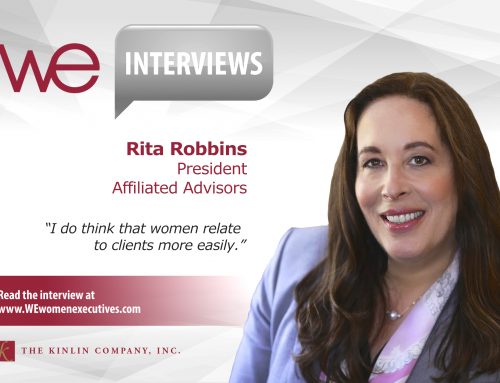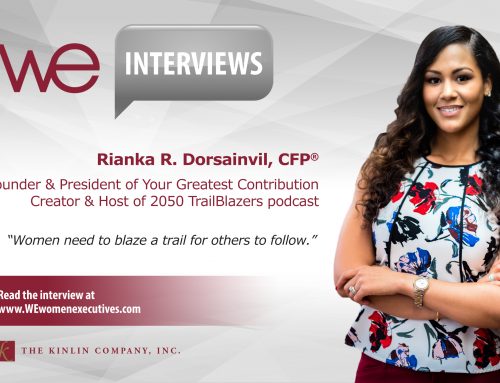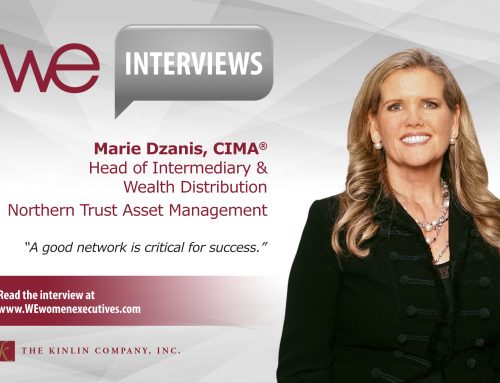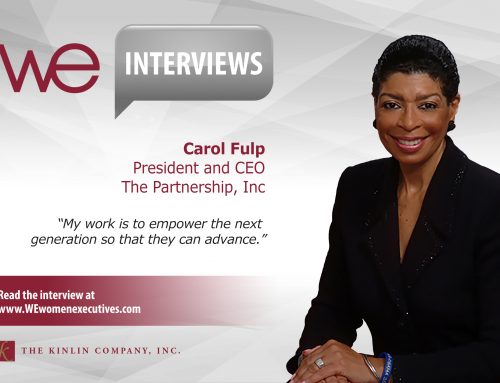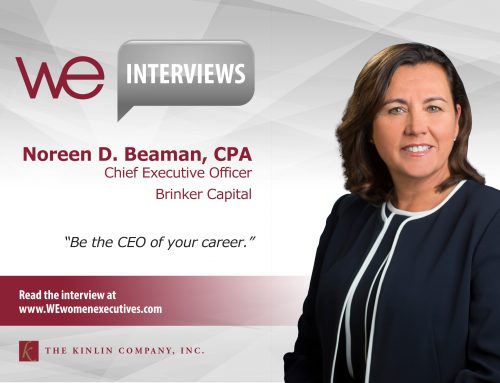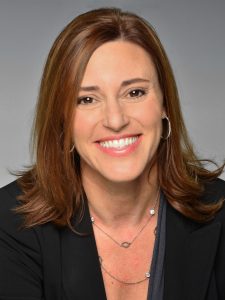 Kathy Sandstrom
Kathy Sandstrom
Senior Managing Director
Global Real Estate Equity Group
Heitman, LLC
Kathy Sandstrom is Senior Managing Director of the Global Real Estate Equity group at Heitman, LLC, a Chicago-based global real estate investment firm with some $36 billion in assets under management. Responsible for the execution of all of Heitman’s securities business initiatives, Sandstrom works closely with three portfolio managers, one in each of the regions in which Heitman invests, and supervises a group of 27 employees dispersed throughout offices in Chicago, London, Munich, Hong Kong and Melbourne.
We recently sat down to discuss her professional journey, the skillset that has carried her along the way, and the insights she has to offer to other senior-level women.
A comfort with risk
We began our conversation with a brief review of Sandstrom’s background. Tell me a bit about your journey from an entry-level position in the investor accounting group to the senior managing director’s position, I requested.
“My dad was my role model. A decorated Navy pilot, he was grounded from flying after 20 years of service due to a kidney issue. He then went off to enjoy a variety of different careers, including studying at the Culinary Institute of America and working as an executive chef, running a hotel, and ending his career as a CFO for a large transportation company. He was always looking for a new challenge or adventure, never afraid of change, and it’s only now, at age 47, that I can see what an impact that had on me.
“I didn’t actually go to college directly out of high school, but instead opened a business and spent a few years working and figuring out myself. During that time, I also worked at a hotel to give myself a paycheck, because owning your own business can be tough. At 23 I finally enrolled in school and though I was still unsure of what I wanted to do, I studied accounting at my dad’s recommendation, as he thought it would give me a well-rounded business basis. Upon graduation, I moved to Chicago and landed at Heitman in the firm’s accounting group. It was such a good decision and lucky move for me on so many levels. I’ve been with this company for 20 years now and have been given the opportunity to work in a number of wildly different roles.
“My dad taught me to try things and not to fear taking risks, and I was blessed to land in an organization that said, ‘You’ve got skill, we will take a chance on you.’ My first role outside of accounting was working with the consultants for our clients. Though this opportunity presented itself just a bit over a year after my joining, I was already ready for a new challenge.
“A few years after that second position, the firm reshaped its client function, and I got in on the ground floor, helping to market the products of the firm. I discovered that I love marketing strategy – I love going out and talking to clients, and I’m passionate about the organization and the people I work with, so it was a nice marriage. That position led to a business development role, then a few years ago, our CEO said, ‘Why don’t you make an absolute right turn in your career and take over running a global equities business? We need a CEO of that unit, and I think you have all the right skills to do it.’ Everybody around here thought, ‘What is she doing? She’s a great marketer; she does a good job running her team and creating new marketing strategies – this is such a complete about-face.’ And it was! But as it turns out, I love it.”
A blindness to gender roles
Given Sandstrom’s somewhat circuitous route to her current position, I was curious to know what traits or behaviors she believed were of most value to her in reaching this point in her professional journey.
“I’ve never really focused on being a female or thought that I was fighting uphill through a male world. Obviously, I work in an industry that’s heavily dominated by men, but I’ve never spent a lot of time thinking about what it means to be a woman. I read articles that talk about how women are hesitant to take a job unless they have all the qualifications for it, but I missed that gene. Some of it may be ego. I’m filled with doubt and insecurities on my own capabilities – the imposter syndrome explains it all – but at the same time, I don’t have inhibitions about trying something new because I feel like I’ve always been successful, so my assumption has always been that if I failed, I could always just go back to my previous position.
“I also have an interesting leadership style, which I believe is why people want to work with me. I’m collaborative by nature – I like working as part of a team. I don’t have a need to dominate by ego or be recognized as the boss, but at the same time I’m opinionated and not afraid to say that. I’m nice until I’m not, but I’m never mean to be mean. At times I’ve been told I’m too direct, yet I’ve also been told I don’t speak up enough. I speak up when I have something to say and that seems to work.”
A struggle with work/life balance
Having gained some sense of Sandstrom’s skillset, I was curious to hear how she has handled adversity in her career. What challenges have you encountered over the years and how have you navigated them, I asked.
“I have three awesome kids – a 17-year-old daughter and 12-year-old twin boys – and I have raised them while coming up through the ranks. I spent a lot of time trying to strike that work-life balance, or rather I spent a lot of energy trying to hide the fact that I was balancing it all because I didn’t want to be judged for putting my mom responsibilities before my work responsibilities. I’m surrounded by a lot of great guys, but they have the benefit of having stay-at-home wives, so it’s different. The mommy guilt is completely on me and I own that, but I can’t control it. I spent a lot of energy trying to conceal the fact that I was juggling it all and trying to be everywhere at the same time.
“Now I believe that women who are in my position should embrace the work/life balancing act. We should talk more about it and not try to hide it. I think the right message to send to younger women and men is: you can do both. ‘How do you do it all?’ – it’s one of those questions that make me crazy. No one asked my husband that question; it’s such silly role playing that we do in this corporate environment.
“Granted, I am blessed to have a husband who’s a true 50/50 partner. He travels as well, so when our daughter was born, we made an agreement that we would never be out of town at the same time, and for 17 years I can tell you of only two instances when we haven’t been able to make that work. We’ve had to make some choices and it’s come at a cost, but that was something that was really important to us. I’ve always had awesome help at home, too, wonderful women with whom I’m still very close.
“Thankfully, my career has also coincided with the advent of technology, so I’ve been able to work easily and efficiently when I am not physically in the office. My company was an early adopter of video conferencing, so I can manage teams around the world without having to be on a plane as much as one would have to a few years ago – it’s not the same as face to face, but it certainly goes a long way.”
An appreciation of oneself
In light of Sandstrom’s struggle with the issue of work/life balance, I was moved to ask a follow-on question. Is there anything you know now that you wish you had known at the outset of your career?
“I wish I had cut myself a little slack earlier. I’m awfully hard on myself. My lack of confidence isn’t always seen, but it’s always in the back of my head, and I wish I had let that go a bit. In the last few years, we’ve been working internally on leadership development, and as a result, I’m valuing my leadership skills more than I have in the past. I wish I would have recognized some of my talents earlier when I was busy putting my head down and just running forward.”
As our conversation concluded, I posed a final question: what advice would you give to someone who’s in a senior role now, but struggling to get to that next level?
“Take risk. Ask for what you deserve and don’t second guess yourself. And most importantly, don’t try to fit in. There’s such a benefit to a woman’s voice for organizations – so be true to who you are.”
![]()

